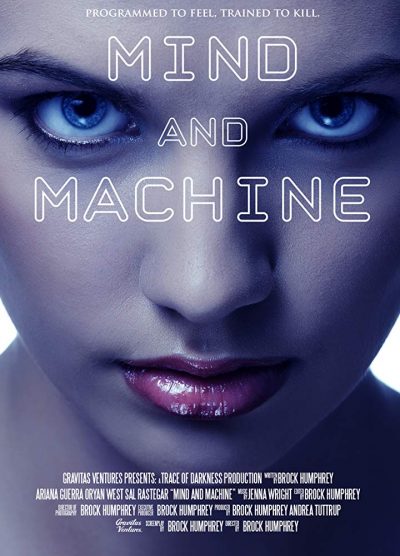 ★★★
★★★
“The most expensive straight-to-video release ever.”
Okay, that’s perhaps a little unfair. When this began filming, back in August 2018, who could have predicted that the summer this year would be all but wiped out [seriously: the second quarter in North America, the total box-office was $4.8 million. Last year, the same period brought in $3.3 billion] As films scrambled to re-establish themselves, finding new slots for hopeful release, post-pandemic, there were inevitable casualties, as some were left without seats when the music stopped. Probably the biggest loser was the latest of Disney’s live-action adaptations, based on the beloved animated feature of 1998.
Despite a budget estimated at $200 million, it had the misfortune to be originally scheduled just before everything went to hell. Indeed, it even had its world premiere on March 9th, but the broader release was bumped, first to July, then August, before it was cancelled as a theatrical release in the United States, instead being used as a pay-per-view title on Disney’s streaming service, Disney+. Matters were likely not helped by online comments made by the film’s star against the anti-Chinese protests in Hong Kong, which triggered calls for a boycott of the film. It was notable, even before the film was commercially available, that the Google ratings of the film were largely 1/5 or 5/5, as competing armies of review bombers sought to skew the results to their desired outcome.
As with most things which provoke extreme reactions, the reality sits somewhere in the middle. This isn’t the first live-action adaptation of the legend I’ve seen. There was previously a 2009 adaptation from Hong Kong, starring Wei Zhao as Hua Mulan. Our review of it concluded, “There’s a nice balance between the action and emotional aspects… Heavy is the head that wears the general’s helmet is the moral here, and it’s driven home effectively enough, thanks mostly to Zhao’s solid performance.” It merited 3½ stars, a little above this, though that may simply be due to the newest version being more directly compared to the animated version. That’s inevitable, especially when Disney have sampled songs from it into the new soundtrack.
 And make no mistake: I love the animated version: to me, it’s the best of the “new wave” of Disney features which began with Beauty and the Beast. It has a huge emotional range, perhaps more than any other Disney film outside Pixar, and can switch on a dime, going from cheerful song to grim destruction without jarring. I will also say, this is the first I’ve seen in Disney’s live-action adaptations of their animated catalog. All the others seemed entirely redundant, but this one seemed to offer scope for a different take on the subject. It does deliver on this expectation, but I can’t help feeling that, overall, more was lost here than gained.
And make no mistake: I love the animated version: to me, it’s the best of the “new wave” of Disney features which began with Beauty and the Beast. It has a huge emotional range, perhaps more than any other Disney film outside Pixar, and can switch on a dime, going from cheerful song to grim destruction without jarring. I will also say, this is the first I’ve seen in Disney’s live-action adaptations of their animated catalog. All the others seemed entirely redundant, but this one seemed to offer scope for a different take on the subject. It does deliver on this expectation, but I can’t help feeling that, overall, more was lost here than gained.
The live-action version certainly doesn’t manage the same breadth of emotion. For example, there are moments here which feel like they should be comic – except they’re just not funny. It’s a Very Serious tale [capitals used advisedly], almost to the point of solemn, with this Mulan at times feeling like a duty-driven automaton. It’s a thoroughly different portrayal, considering the story is almost identical. When the Chinese empire is threatened by Mongolians, under Böri Khan (Lee), the Emperor requires each family to provide one man to the army. Rather than succumb to an arranged marriage, Mulan (Liu) takes the place of her father in the draft. Though her ruse is eventually discovered, Mulan proves key to the defeat of the invaders.
This edition, however, has no musical numbers, no comic relief sidekick dragon and no romantic interest for Mulan in the shape of her commander [this was apparently excised for #MeToo reasons, but doing so ended up angering some in the GLBTQ community. Yes, apparently, Mulan/Li Shang gay ‘shipping is a thing. Who knew?] Instead, it adds Xianniang (Li), a sorceress who assists Khan, but who sees in Mulan a younger version of herself – someone forced to repress their abilities and true nature, in compliance with social norms. Their scenes have some potential in terms of dramatic conflict, but there just isn’t enough screen time for their relationship to have much impact.
It’s something the film needs, to overcome what it otherwise a distinct lack of emotion. Crouching Tiger showed a martial arts film can still connect to the viewer’s heart, and this never comes particularly close to doing so. The heroine here largely operates in a vacuum, as far as relationships go, even after her true identity is revealed. This may have been an issue recognized by the makers of the animated version. The presence of Eddie Murphy’s Mushu there now makes a great deal of sense, providing that necessary outlet, and acting as a foil for the heroine throughout her journey.
Yet, boy (or rather, girl), does it look nice. Outside of a couple of moments of slightly flaky CGI early on, such as the young Mulan jumping from a roof, this is a beautiful spectacle, clearly influenced by the likes of Hero in its use of colour. The action is well-choreographed; having Yen as leader of the Imperial army doesn’t exactly hurt, even if you wonder why he can’t defeat the invaders single-handed. After all, I’ve seen Ip Man… [Also in supporting roles, Jet Li plays the Emperor, and the matchmaker is Cheng Pei Pei, of Crouching Tiger, Hidden Dragon fame, but more relevantly here, was one of the first Hong Kong action heroines, in 1966’s Come Drink with Me] I’m definitely sorry we were robbed of the chance to see this on a big screen, as that’s the scale it deserves.
Most of the above was written within 24 hours of watching it, but now, with less than 72 hours having passed, I am seriously struggling to recall many particularly memorable moments. Overall, I can’t say I felt like the two hours were wasted, and it’s perfectly adequate as a big-budget, epic bit of wire-fu. Although, “perfectly adequate” feels like a disappointment, considering what I was hoping for, and this is not going to replace the 1998 film among my favorites, songs or no songs.
Dir: Niki Caro
Star: Yifei Liu, Li Gong, Jason Scott Lee, Donnie Yen





 Y’know, considering this is now more than eighty years old, this was likely better than I expected. Chen makes for a solid and engaging heroine, right from the start, when she tricks the residents of a nearby village, who demand she hand over the proceeds of her hunting [I am hoping the dead bird which plummets to the ground with an arrow through it, less than three minutes in, was a stunt avian…]
Y’know, considering this is now more than eighty years old, this was likely better than I expected. Chen makes for a solid and engaging heroine, right from the start, when she tricks the residents of a nearby village, who demand she hand over the proceeds of her hunting [I am hoping the dead bird which plummets to the ground with an arrow through it, less than three minutes in, was a stunt avian…] I was clued into this when researching my review of
I was clued into this when researching my review of  This strong Indian tale of revenge and (step)mother love was, sadly, the last major appearance for its star. Sridevi accidentally drowned in a Dubai hotel, a few months after the film was released. But it’s a wonderful monument to her talent. She plays Devki Sabarwal, a biology teacher who is having trouble in the relationship with her teenage step-daugher, Arya (Ali). But everything changes after Arya is abducted while leaving a party, raped and beaten, then thrown into a roadside ditch. The fact Arya had been drinking is used to discredit her testimony, and the absence of forensic evidence helps her attackers walk free. Blood relation or not, Devki isn’t having that. With the help of private eye DK (Siddiqui), she starts to impose her own kind of justice, despite the increasing suspicions of Detective Francis (Khanna).
This strong Indian tale of revenge and (step)mother love was, sadly, the last major appearance for its star. Sridevi accidentally drowned in a Dubai hotel, a few months after the film was released. But it’s a wonderful monument to her talent. She plays Devki Sabarwal, a biology teacher who is having trouble in the relationship with her teenage step-daugher, Arya (Ali). But everything changes after Arya is abducted while leaving a party, raped and beaten, then thrown into a roadside ditch. The fact Arya had been drinking is used to discredit her testimony, and the absence of forensic evidence helps her attackers walk free. Blood relation or not, Devki isn’t having that. With the help of private eye DK (Siddiqui), she starts to impose her own kind of justice, despite the increasing suspicions of Detective Francis (Khanna). Intelligence without morality to govern it, is psychopathy. So what happens when you create an intelligent machine, but deliberately avoid installing any kind of moral compass? It’s an interesting idea for a film. Not that you’d know it from this unconvincing effort, which sucks the potential out of it. In this near-future – it’s set in 2024, close enough to now, no actual work is required on the part of the makers – androids have become part of everyday society in many roles. Crime boss Isaac Lynch (Restegar) orders technician Leo Cameron (West) to make one without a conscience, so that it can be used as an assassin, saving those pesky hitman fees. Only Leo crafts the robot, Maya (Guerra), in the image of his late wife. On the plus side: he gets to see his wife again. On the other hand: she’s an amoral killer. Didn’t think that through too well, did he?
Intelligence without morality to govern it, is psychopathy. So what happens when you create an intelligent machine, but deliberately avoid installing any kind of moral compass? It’s an interesting idea for a film. Not that you’d know it from this unconvincing effort, which sucks the potential out of it. In this near-future – it’s set in 2024, close enough to now, no actual work is required on the part of the makers – androids have become part of everyday society in many roles. Crime boss Isaac Lynch (Restegar) orders technician Leo Cameron (West) to make one without a conscience, so that it can be used as an assassin, saving those pesky hitman fees. Only Leo crafts the robot, Maya (Guerra), in the image of his late wife. On the plus side: he gets to see his wife again. On the other hand: she’s an amoral killer. Didn’t think that through too well, did he? To be charitable (pun not intended), this might perhaps have come across better if I were familiar with the “Caribbean Adventure” series by the same author, featuring the exploits of ex-marine
To be charitable (pun not intended), this might perhaps have come across better if I were familiar with the “Caribbean Adventure” series by the same author, featuring the exploits of ex-marine  Dear god, the scenery in this is almost unutterably lovely to look at. It’s the kind of film which left me wishing I’d seen it at the cinema, even if I fear my head would have exploded at the beauty of it all. Right from the opening sequence, featuring an insane swooping shot which seems to last forever, it is just gorgeous. The final battle is so lush, a war occurring in a castle the approximate size of Bavaria, against a back-drop of exploding red-clouds made from fae genocide dust, it should be bottled and sold in the skin-care aisle.
Dear god, the scenery in this is almost unutterably lovely to look at. It’s the kind of film which left me wishing I’d seen it at the cinema, even if I fear my head would have exploded at the beauty of it all. Right from the opening sequence, featuring an insane swooping shot which seems to last forever, it is just gorgeous. The final battle is so lush, a war occurring in a castle the approximate size of Bavaria, against a back-drop of exploding red-clouds made from fae genocide dust, it should be bottled and sold in the skin-care aisle. I feel a little uncertain about reviewing this, since it’s basically two-thirds of a single novel. Or maybe two connected novellas. Oddly, the three entries get longer as they go, starting at 110 pages, increasing to 160 for the second and finishing off at around 210. I’ve been waiting for the third and final part to show up on special offer for a while, but it hasn’t happened. The first two parts were somewhat intriguing, just not enough to convince me to pay full price. So I finally decided to publish and be damned. Wait and see its cost drop the week after this goes live…
I feel a little uncertain about reviewing this, since it’s basically two-thirds of a single novel. Or maybe two connected novellas. Oddly, the three entries get longer as they go, starting at 110 pages, increasing to 160 for the second and finishing off at around 210. I’ve been waiting for the third and final part to show up on special offer for a while, but it hasn’t happened. The first two parts were somewhat intriguing, just not enough to convince me to pay full price. So I finally decided to publish and be damned. Wait and see its cost drop the week after this goes live… The movie opens with a particularly elaborate disclaimer, admitting that “certain cinematic liberties have been sought,” and that “this film does not claim historical authenticity.” Probably wise: Indians take their national heroes very seriously; just last year, another historical epic, Padmaavat,
The movie opens with a particularly elaborate disclaimer, admitting that “certain cinematic liberties have been sought,” and that “this film does not claim historical authenticity.” Probably wise: Indians take their national heroes very seriously; just last year, another historical epic, Padmaavat,  As the lazy joke goes, I preferred this film the first time I saw it, when it was called… Well, actually, it was called
As the lazy joke goes, I preferred this film the first time I saw it, when it was called… Well, actually, it was called